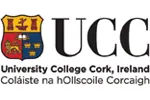We're moving! This site will be relocating to goingto.university in 2026. Please update your bookmarks to the new address.


| The award | How you will study | Study duration | Course start | Domestic course fees | International course fees |
|---|---|---|---|---|---|
| BSc (Hons) | Full-time | 4 years | September | EU 3000 | EUR 3000 |
Overview
BSc Biochemistry is the study of living organisms, particularly the human body, at cellular and sub-cellular levels and is an excellent stepping stone for entry into medicine, dentistry and pharmacy.
Core subjects are cell biochemistry and biology, genetics, biotechnology, metabolism and protein science, with an emphasis on understanding normal and disease states. The lecture course is supplemented by practical classes, where you learn the principles and methodology of research.
The School of Biochemistry and Cell Biology is highly active in research. Final-year research projects are carried out in state-of-the-art laboratories, under the supervision of internationally recognised researchers. BSc Biochemistry provides you with a solid foundation in research, analytical approaches and critical thinking.
Biochemistry graduates have excellent career prospects in the biopharmaceutical and biotechnological industries and in the broad biomedical research area, including drug development and disease diagnoses. BSc Biochemistry is recognised by the Teaching Council.
Course Details
Year 1 Modules:
Core
BL1002Cell, Biomolecules, Genetics and Evolution (5 credits);
BC1001Introduction to Biochemistry and the Biological Basis of Disease (5 credits);
BL1004Physiology and Structure of Plants and Animals (5 credits);
MB1003Microbiology in Society (5 credits);
CM1200Fundamentals of Modern Chemistry 1 (10 credits);
MA1001 & MA1002Calculus for Science I & II (5 credits each);
PY1010Physics for Biological and Chemical Sciences (10 credits)
Electives
BL1005Introduction to Ecology (5 credits);
BT1001Biotechnology (5 credits);
CM1201Fundamentals of Modern Chemistry 2a (10 credits)
Year 2 Modules:
Core
Principles of Human Structure; Mammalian Cell and Tissue Structure; Biomolecules; Principles of Metabolic Pathways; Fundamentals of Microbiology; Principles of Microbiology; Introductory Molecular Biology; Introductory Physiology; Introduction to Biostatistics
Electives
Main Group and Transition Element Chemistry; Fundamentals of Organic Chemistry; Energetics and Kinetics; Aromatics,Carbonyls and Alkenes; Spectroscopy; Introduction to Plant Biotechnology; Vertebrate Diversity; Fundamentals of Ecology
Year 3 Modules:
Core
Structural Biochemistry; Introduction to Cell Biology and Biomembranes; Cell Signalling; Biochemical Immunology; Molecular Biology; Principles of Medical Genetics; Biochemistry of the Central Nervous System; Biophysical and Biochemical Methods; Bioinformatics; Literature Project
Electives
Environmental Chemistry and Analysis; Medical Microbiology; Virology; Transmission and Epidemiology of Infectious Disease; BioPharmaceutical Engineering; Cell and Epithelial Physiology; Introduction to Pharmacology; Introduction to Toxicology; Chemotherapy and Pharmacology of Inflammation
Year 4 Modules:
Advanced Cell Biology; Protein Science; Biochemical Toxicology; Cancer Biology; Biochemical Analysis and Research Methods; Molecular Basis of Brain Disorders; Advanced Metabolism in Health, Disease and Cancer; Principles and Applications of Biotechnology; Developmental Genetics; Research Project
On completion of a BSc in Biochemistry, you will:
See the College Calendar for more detailed information on the Programme and the Book of Modulesfor a more detailed description of Programme Modules.
Fact File
Course Code: CK402
Course Title: Biochemistry
College: Science, Engineering and Food Science
Duration: 4 years
Teaching Mode: Full-time
Qualifications: BSc (Hons)
NFQ Level: Level 8
Costs: Full-time EU/EEA/Swiss State undergraduate students may be exempt from paying tuition fees. The State will pay the tuition fees for students who satisfy the Free Fees Criteria. In 2016/17 the Student Contribution Charge will be EUR 3,000 and the Capitation Fee will be EUR 165.
2017 Entry Requirements: Refer to CK402, Biological & Chemical Sciences
Entry Points: CK402: 480 in 2016. Points may vary each year.
Course Practicalities
Expected lecture hours:Biochemistry lectures are held in the mornings between 9am and 1pm.There are approximately 8-12 lectures per week.
Expected lab/practical hours:Laboratory practical classes are in the afternoons between 2pm and 6pm. There are approximately three laboratory classes per week. Final year research projects are a major component of final year and generally span a full semester.
Assessment
Written exams will take place before Christmas and in May. Not all modules will have formal examinations. Many modules use other types of assessment including essay and short answer examinations, multiple-choice-question examinations, evaluation oflaboratory practical skills, laboratory reports, literature reviews, independent laboratory research project, research mini-thesis and seminar presentation, oral presentation and oral examination.
Application Procedure
Refer CK402.
Further Contact Information
353 (0)21 4205415
2017 Entry Requirements: Refer to CK402, Biological & Chemical Sciences
Entry Points: CK402: 480 in 2016. Points may vary each year.
Contact University College Cork (UCC) to find course entry requirements.
Below are some suggested courses at other providers that you may also be interested in:
General Veterinary Medicine DVM
University of Veterinary Medicine and Pharmacy in Košice
Find out moreInternational Entrepreneurship Professional Bachelor Degree
KdG University of Applied Sciences and Arts
Find out moreIf you do not meet the entry requirements for this course then consider one of these courses from another institution:
There are 338 other courses listed from University College Cork (UCC). A selection of these are displayed below:
Join the StudyLink email list and never miss a chance to turn your study abroad dreams into reality!

Find out more about studying in Ireland